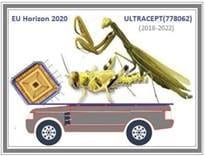The Human Centred Computing (HCC) cluster of the Department of Computer Science at the University of Hamburg consists of four research groups: (1) Technical Aspects of Multimodal Systems (TAMS, led by Prof. Jianwei Zhang), (2) Knowledge Technology, (3) Machine Learning and (4) Natural Language Systems.
Within HCC, there has long been interest in combining forces and integrating common research interests around the theme of cross-modal learning. In 1998 early research groups took a first step toward this integration by formulating one of their guiding research themes as “Intelligent Systems for Complex Applications and Domains.” Subsequently, doctoral training programs were established bilaterally with China in 2006 (CINACS) and with other European partners in 2010 (RobotDoc). In 2012 the cluster established a new international masters program (Intelligent Adaptive Systems), with associated courses in intelligent robot systems, algorithmic learning, knowledge engineering, neural networks, natural language processing, etc. An increasing number of students are jointly supervised by members of different groups within HCC, and the groups have been successful in international and European research grants.
The HCC cluster is an international focal point of research in intelligent robotics, neural networks, and artificial intelligence, as evidenced by HCC groups hosting the International Multisensory Research Forum (IMRF 2008, co-organized with UH Psychology), the IEEE International Multisensor Fusion and Information Integration Conference (MFI 2012), the International Symposium on Development, Networks, and Multisensory Processing (2014, co-organizing with UKE), the International Conference on Artificial Neural Networks (ICANN 2014), and the IEEE/RSJ International Conference on Intelligent Robots and Systems (IROS 2015), all in Hamburg.

